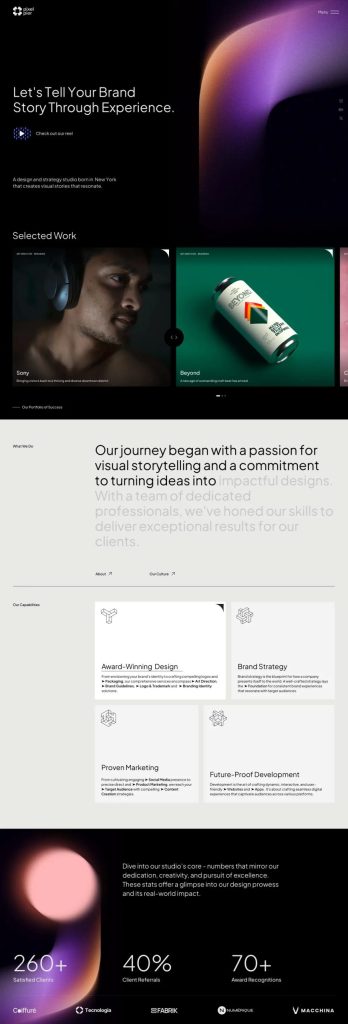As we venture further into 2024, the landscape of artificial intelligence continues to evolve at a breathtaking pace. Major tech companies have unveiled newly released AI large models, groundbreaking tools and APIs, emerging technologies addressing specialized use cases, and innovative products for various industries. This article explores these advancements, highlighting their features, functionalities, and potential impact across sectors such as healthcare, business automation, and education.
Recent advancements in AI large models have set a new benchmark for capabilities and performance, with Google’s latest release, Gemini 1.5 Pro, leading the charge. This model boasts impressive multimodal capabilities, allowing it to seamlessly process and understand both text and visual data. The extended context understanding feature of Gemini 1.5 Pro enables it to maintain context over significantly longer interactions, enhancing its usability in applications such as virtual assistants, chatbots, and analytics tools. According to Google’s AI research team, this model uses a refined version of the Transformer-XL architecture, which has improved its ability to manage extended sequences of information without losing coherence (source: Google AI Blog).
Furthermore, the introduction of advanced APIs and tools integrating these AI models has empowered various industries. For instance, OpenAI’s recently launched API now incorporates multimodal functionalities, enabling developers to create applications that leverage text, image, and audio inputs. This capability is particularly useful for industries such as marketing and customer service, where understanding and responding to diverse forms of user input is crucial. Businesses can utilize these tools for automating responses to customer inquiries, generating marketing content, and analyzing consumer behaviors (source: OpenAI’s API Documentation).
The latest trends also highlight the emergence of AI technologies focusing on specialized use cases. Notably, there is a growing demand for more reliable and debiased large language models (LLMs). In response to this, several companies, including Anthropic and Hugging Face, have introduced frameworks that prioritize ethical considerations and mitigate bias in AI outputs. These models employ advanced fine-tuning methods and feedback loops that adaptively learn from user interactions, significantly reducing the occurrence of biased responses. Many of these models are being implemented in sectors such as recruitment and legal services, where fair and unbiased decision-making is paramount (source: Anthropic Research).
In parallel, there is notable progress in developing domain-specific language models, which are tailored to meet the needs of specialized industries. For example, Cohere recently announced its release of the Financial LLM, designed specifically for the finance sector. This model has been trained on vast amounts of financial data, enabling it to provide accurate insights, generate financial reports, and assist in real-time trading decisions. The financial services industry benefits immensely from such specialized models, as they can significantly reduce the time spent on research and enhance decision-making accuracy (source: Cohere Press Release).
**Innovative Products for Enterprise Applications**
The enterprise sector has witnessed a surge in innovative AI products designed to enhance operational efficiency. Companies like Salesforce and Microsoft have integrated advanced AI functionalities into their existing platforms. Salesforce’s Einstein 3.0 now utilizes the latest developments in AI, offering features such as predictive analytics and automated customer segmentation. This enables businesses to tailor their marketing strategies more effectively and anticipate customer needs with a higher degree of precision (source: Salesforce Official Website).
Likewise, Microsoft has rolled out enhancements to its Azure AI services, incorporating tools that support advanced analytics and workflow automation. The integration of AI into business processes has proven to streamline operations significantly, providing a competitive edge to organizations that adopt these technologies (source: Microsoft Azure Blog). Furthermore, this shift is driving a trend toward more data-driven decision-making, which is expected to permeate various industries, from retail to logistics.
**AI in Cybersecurity**
Cybersecurity is another domain experiencing transformative changes due to recent AI advancements. Companies like CrowdStrike have developed innovative solutions that leverage AI to detect and respond to threats in real time. Their Falcon platform now includes enhanced machine learning algorithms that identify patterns and anomalies in network traffic, enabling businesses to proactively counteract potential breaches. Staying ahead in cybersecurity is crucial, as cyber threats continue to grow in sophistication and frequency (source: CrowdStrike Press Release).
AI technologies are also playing a pivotal role in enhancing the capabilities of threat intelligence platforms. By continuously learning from vast amounts of data, these models can predict future threats and recommend preventive measures, greatly reducing the risk of security incidents (source: Forrester Research Report). In a landscape where data security is paramount, these AI-driven solutions are likely to become indispensable tools for organizations.
**Creative Industries and AI**
The creative industries have begun to embrace AI in remarkable ways, with tools designed for content generation, music composition, and design. Recently, Adobe has launched its latest Creative Cloud suite, which includes AI-driven features like “Adobe Sensei.” This tool leverages machine learning to assist designers in automating mundane tasks, such as image enhancement and layout adjustments, allowing them to focus more on creativity and less on technical aspects. The application of AI in the creative process has opened up new avenues for artists, allowing unprecedented levels of creativity and efficiency (source: Adobe Official Blog).
Moreover, AI-generated art and music are becoming more mainstream, thanks to the development of sophisticated generative models. Companies like OpenAI and Runway have released tools that allow artists to collaborate with AI, generating unique pieces based on user inputs and style preferences. This collaborative effort has the potential to revolutionize the creative processes in industries ranging from film to advertising, where the demand for rapid and innovative content production is ever-increasing (source: OpenAI’s DALL-E Updates).
**Impacts on Healthcare and Education**
In the healthcare sector, AI advancements are enabling more personalized patient care and more efficient administrative processes. For instance, the integration of AI models in telemedicine has enhanced diagnostic capabilities. By analyzing historical health data and current symptoms, AI systems can assist doctors in making more accurate diagnoses, leading to improved patient outcomes (source: The Lancet).
Additionally, AI tools designed for administrative tasks, such as scheduling and billing, help healthcare providers optimize their operations, allowing them to focus more on patient care (source: Healthcare AI Report 2024). The educational sector is also experiencing similar transformations. AI-driven platforms such as Duolingo and Coursera are using advanced algorithms to deliver personalized learning experiences, catering to individual student needs and learning speeds, thereby improving retention rates (source: Education Technology Insights).
**Conclusion**
In conclusion, the advancements and innovations in artificial intelligence as of 2024 are not just incremental improvements; they indicate a paradigm shift across various sectors. From newly released large models like Google Gemini 1.5 Pro, which leverage multimodal capabilities, to domain-specific languages that cater to specialized industries, the future of AI looks promising. Moreover, the integration of these technologies into tools and APIs has further streamlined operations across business, healthcare, education, and cybersecurity, paving the way for increased efficiency and enhanced decision-making. As we continue to navigate this rapidly evolving landscape, it is clear that AI will play a central role in shaping our future.





























